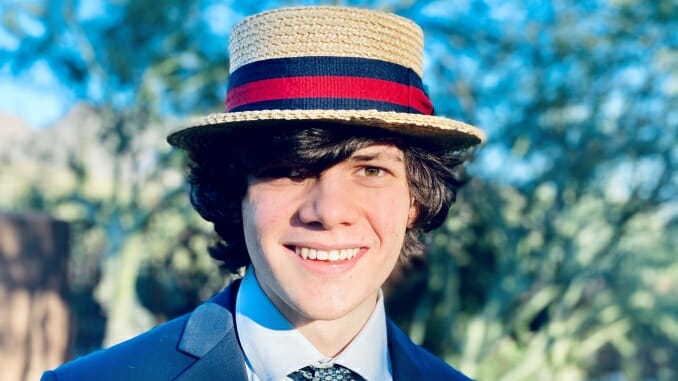With Discover Me, Developer Josh Tint Creates A Safe Digital Space For Gender Exploration
Image via Josh Tint/Apple
The rights of LGBTQ, specifically trans and gender-diverse people, are under attack, and many of those fights are playing out in the same places they once saw as safe and inclusive. From the overarching vagaries of Florida’s “Don’t Say Gay” bill to hyperfocused legislation aimed at access to gender-affirming healthcare, the unfounded pushback endangers these populations physically, mentally and emotionally.
Wrestling with one’s own gender identity can be scary, and the current atmosphere of bills that aim to medically detransition trans youth and growing calls to ban books that discuss gender with more fluidity can enhance that sense of trepidation. But the virtual and online tools where this fight plays out aren’t exclusive to those promoting transphobia.
Discover Me is an app designed specifically for those exploring or questioning their gender identity to travel that path safely. Designed by Arizona State University student Josh Tint, the app allows users to try out different pronouns and names in a safe, personal environment as they delve into their own ideas of personal identity. Pronouns and names can be viewed standalone or in written statements so users can see how their choices fit them when used in everyday examples.
Tint created the app after starting his own gender journey and finding little aid during the early months of the Covid-19 pandemic. “Many resources helped explain what different gender identities were, but largely in abstraction or in an academic way that was hard to relate to my personal experiences,” Tint told Paste. “I found myself just scribbling little notes to myself using different names and pronouns to see if they sounded authentic to me. I essentially wanted to create an interactive, discreet experience that would make it convenient for others to quickly and easily try on different identities in a similar way.”
The process Tint describes is common among those questioning their gender and feeds into the idea behind Discover Me well. He describes the app as a “more casual approach” and hopes that it will encourage others “to be more open and honest about their journeys.”
-

-

-

-

-

-

-

-

-

-

-

-

-

-

-

-

-

-

-

-

-

-

-

-

-

-

-

-

-

-

-

-

-

-

-

-

-

-

-

-








































